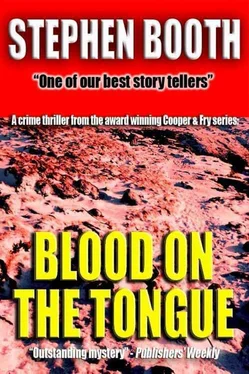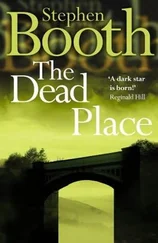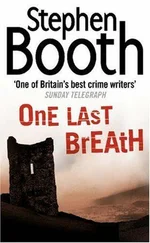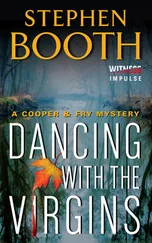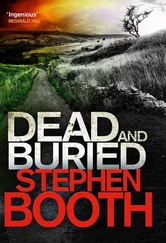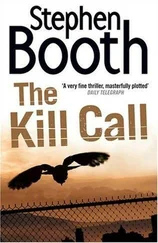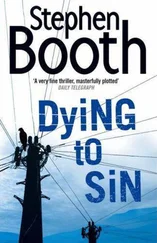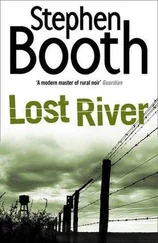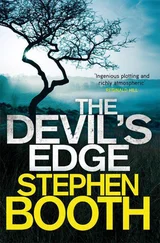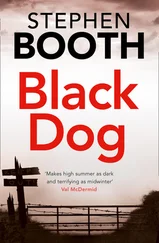Stephen Booth - Blood on the Tongue
Здесь есть возможность читать онлайн «Stephen Booth - Blood on the Tongue» — ознакомительный отрывок электронной книги совершенно бесплатно, а после прочтения отрывка купить полную версию. В некоторых случаях можно слушать аудио, скачать через торрент в формате fb2 и присутствует краткое содержание. Жанр: Полицейский детектив, на английском языке. Описание произведения, (предисловие) а так же отзывы посетителей доступны на портале библиотеки ЛибКат.
- Название:Blood on the Tongue
- Автор:
- Жанр:
- Год:неизвестен
- ISBN:нет данных
- Рейтинг книги:5 / 5. Голосов: 1
-
Избранное:Добавить в избранное
- Отзывы:
-
Ваша оценка:
- 100
- 1
- 2
- 3
- 4
- 5
Blood on the Tongue: краткое содержание, описание и аннотация
Предлагаем к чтению аннотацию, описание, краткое содержание или предисловие (зависит от того, что написал сам автор книги «Blood on the Tongue»). Если вы не нашли необходимую информацию о книге — напишите в комментариях, мы постараемся отыскать её.
Blood on the Tongue — читать онлайн ознакомительный отрывок
Ниже представлен текст книги, разбитый по страницам. Система сохранения места последней прочитанной страницы, позволяет с удобством читать онлайн бесплатно книгу «Blood on the Tongue», без необходимости каждый раз заново искать на чём Вы остановились. Поставьте закладку, и сможете в любой момент перейти на страницу, на которой закончили чтение.
Интервал:
Закладка:
The old man had a knack of making Grace feel foreign. It was an uncomfortable feeling, which she'd never quite got used to since marrying Peter. Before, her name had been Woodward, and she'd never even considered her national identity. She was British, and that meant you didn't have to think about it. But suddenly one day, her name was Lukasz, and people treated her differently, as if she'd been re-born as a foreigner. Even people she'd known all her life and had been to school with seemed to imagine she might have forgotten how to speak English.
And then, after the accident six years ago, Grace had found herself being glad to feel foreign. Now, when she went into a shop and people fell suddenly silent, she was able to believe that it was because they'd heard only her name and mentally labelled her as some kind of East European asylum seeker. There were plenty of asylum seekers now, in the guest houses in Buxton Road.
Grace had read stories in the newspapers recently about groups of East European women and children visiting shops in local villages supposedly asking for directions and distracting the shopkeepers while their children stole from the shelves. She had no doubt it was true. Most of these people were gypsies anyway, and Edendale had suffered its share of gypsy problems for many years. One year, a tribe of them had parked their lorries and caravans in a field next to Queen's Park. From the corner of the Crescent, she'd been able to see their washing lines and their children playing in the hedge bottoms. She'd watched their dogs running wild and their rubbish piling up day by day in the corner of the field. It had been like watching the coming of winter and the dying of the landscape, like waiting and waiting for the first day of spring, when the sun eventually came out and it seemed possible to make things look neat and respectable again. She'd experienced the same sense of impotence, the same impatience, as she waited for an irritation to be gone from her life.
But finally, one morning, the gypsies had departed before dawn, leaving a sea of mud in the field and litter of all kinds strewn down the banking towards the road. What did it matter to her where the gypsies went when they moved on? What did it matter to her where the snow went? The snow was absorbed back into the earth somehow, that was all that mattered. There was a cleansing rhythm to nature that she found comforting.
Grace turned back to the room. Her eye immediately fell on the Lukasz family photograph in the alcove near the door. Herself and Peter, Zygmunt and Krystyna, with the grandchildren at their knees. She had once, before they were married, tried to persuade Peter to change their surname. She thought it would be best for their future children. A good alternative would have been Lucas, she'd said. It would only have been a change in spelling really — the pronunciation was almost the same. Peter had said no. He had said it in a tone of voice she hadn't heard from him until then, a tone that made her hesitate, then decide not to argue. He'd never given her a reason, and she hadn't asked, in the end.
She looked at the face of the old man, Zygmunt, at the proud tilt of his head and the direct stare. Peter was becoming more and more like his father with age. Sometimes, if she watched him carefully, she saw a different look in her husband's eyes when the old man called him 'Piotr'. It was a look that she'd never been able to bring to his eyes, even in their most intimate moments. No matter how many times she whispered his name, she could never bring the same look of pride. The meaning wasn't there for him in 'Peter' in the way it was when he heard his Polish name. For a moment, she wished she could do it by calling him 'Piotr' herself. But she knew it was too late to change a habit now.
Grace went quickly to the window when she heard the sound of a car. A Ford had pulled up at her kerb beyond their hedge. She could see a man with fair hair in the driver's seat. It wasn't Andrew. A woman got out on the passenger side. She met Grace's eyes for a moment. Then she turned away and walked to a house two doors down, while the driver waved and drove off. Grace let go of the breath she'd been holding. It wasn't her either. Not yet.
Frank Baine waited to be sure he still had their attention. Alison Morrissey had her gaze fixed on Chief Superintendent Jepson. She seemed to be trying to will the Chief to listen, though Cooper knew Jepson well enough to see that his brain had switched off already. Probably he'd decided in advance the amount of time he was prepared to give. Cooper wondered how fast the clock was ticking down.
'Former Pilot Officer Zygmunt Lukasz is the sole surviving crew member of Sugar Uncle Victor,' said Baine. 'Lukasz was one of the youngest of the crew, but even he is seventy-eight now. As it happens, he lives here, in Edendale.'
'No doubt you'll be visiting him,' said Jepson, as if suggesting there was no time like the present.
'We have been in contact with the Lukasz family,' said Baine. 'It would be fair to say that they're not keen to co-operate.'
'Pity,' said Jepson.
'On the day of the crash, the skipper had filed a visual flight record with flight control, as was normal practice,' said Baine. 'He'd been briefed on broken clouds at two thousand feet and poor visibility. But somehow he went off course and found himself over the Peak District. He discovered the fact too late, when he nosed the aircraft down through the overcast to establish his position. Directly in front of him was Irontongue Hill. He never stood a chance of avoiding it.'
'Five men died in the crash. There were two who survived.'
'Yes, the seventh was the pilot, my grandfather,' said Alison Morrissey. 'After the crash, he was never found.'
Cooper was ready for this. It was the whole point of the meeting, after all. The rest was just preamble. 'He was listed as having deserted,' he said. 'In the air accident enquiry, he was also blamed for the crash.'
Morrissey turned on him suddenly. 'He was the pilot. He was in command of the aircraft. Since there was no evidence given of enemy action or mechanical fault, he was bound to take the blame. He was branded guilty by default. And there's absolutely no evidence that my grandfather deserted. Absolutely none.'
'But he was seen leaving the area,' said Cooper.
'No — he was not.'
Chief Superintendent Jepson stirred slightly, his interest piqued by the suddenly raised voices. He studied the report that had been prepared for him by the Local Intelligence Officer. 'According to my information, two young boys were spoken to, who said they'd seen an airman walking down the Blackbrook Reservoir road, from Irontongue Hill towards Glossop. That seems fairly conclusive.'
'Their statement was crucial. I'd like to find them now to talk to them, but the boys aren't named in the reports I have.'
'That might be unfortunate from your point of view, Miss Morrissey, but they were only children, after all. Twelve years old, and eight. Why should they lie about something like that?'
'I have no idea.'
'Also, it appears that a man in uniform was reported to have been seen heading away from the area later that day. In fact, he was picked up by a lorry driver on the A6 near Chinley. That was a perfectly normal thing for a driver to do at that time.'
'The man was never positively identified as Pilot Officer McTeague,' said Morrissey.
'We used to do it until quite recently, in fact. But not for a few years.'
'Do what?'
'Give lifts to servicemen. They would stand at the roadside with their kitbags and a sign saying where they were going, and motorists would stop for them. You could see what they were by their haircuts, because all the other young men of their age had long hair then, I can remember picking a few soldiers up myself on the M6 roundabout near Preston, in the days when I was serving with the Lancashire force. These days, though, you can't trust anybody. You never know who might have got hold of an army uniform or a bit of equipment. Let them into your car and you could be mugged in a minute, or worse. I would advise members of the public against it, for their own safety.'
Читать дальшеИнтервал:
Закладка:
Похожие книги на «Blood on the Tongue»
Представляем Вашему вниманию похожие книги на «Blood on the Tongue» списком для выбора. Мы отобрали схожую по названию и смыслу литературу в надежде предоставить читателям больше вариантов отыскать новые, интересные, ещё непрочитанные произведения.
Обсуждение, отзывы о книге «Blood on the Tongue» и просто собственные мнения читателей. Оставьте ваши комментарии, напишите, что Вы думаете о произведении, его смысле или главных героях. Укажите что конкретно понравилось, а что нет, и почему Вы так считаете.
